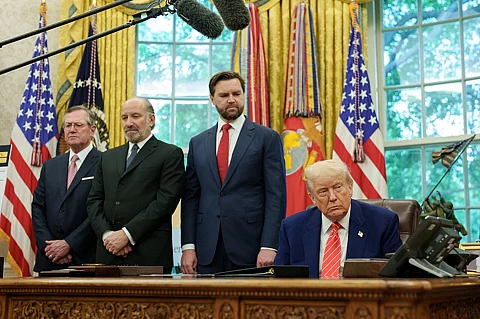

The first group of 49 white South Africans granted refugee status by the Trump administration departed Johannesburg on Sunday, en route to Washington, D.C., before continuing to Texas. Their resettlement follows months of strained relations between the U.S. and South Africa over allegations of racial discrimination against the country’s white minority.
The U.S.-funded charter flight, confirmed by South African Transport Ministry spokesperson Collen Msibi, was authorized to transport Afrikaners—a predominantly Dutch-descended ethnic group—under a program initiated by President Donald Trump. "The application for the permit stated it's for Afrikaners relocating to the U.S. as refugees," Msibi said.
The move has drawn sharp criticism from South Africa’s government, which dismissed U.S. claims of systemic discrimination as "unfounded" and politically motivated. In a statement on Friday, South Africa’s foreign ministry defended its record on racial equality, citing efforts to redress apartheid-era injustices.
Tensions escalated in February after Trump signed an executive order accusing South Africa of "government-sponsored race-based discrimination," including land seizures from white farmers—a claim Pretoria denies. The order paved the way for Afrikaner resettlement, with the State Department reporting around 8,000 inquiries. Up to 1,000 refugees could be admitted this year.
The Trump administration’s stance has been bolstered by Tesla CEO Elon Musk, a South African-born advisor to the president, who has alleged a "genocide of white people" in the country. Critics, however, note that white South Africans—who comprise 7% of the population—still hold disproportionate wealth and land ownership, controlling nearly 78% of private farmland.
Bilateral relations further deteriorated in March when South Africa’s ambassador to the U.S., Ebrahim Rasool, was expelled after accusing Trump of exploiting "white victimhood." The U.S. retaliated by labeling Rasool’s remarks as "race-baiting."
The resettlement program also contrasts sharply with the Trump administration’s broader crackdown on refugee admissions, which have been severely restricted since 2017. While Afrikaners are fast-tracked, traditional refugee applicants often face years-long delays.
South Africa has meanwhile drawn U.S. criticism for its stance on Israel, including its genocide case against Israel at the International Court of Justice—a claim Israel vehemently denies.
As the first group of refugees prepares to arrive in the U.S., the program remains a flashpoint in an increasingly fraught diplomatic relationship.